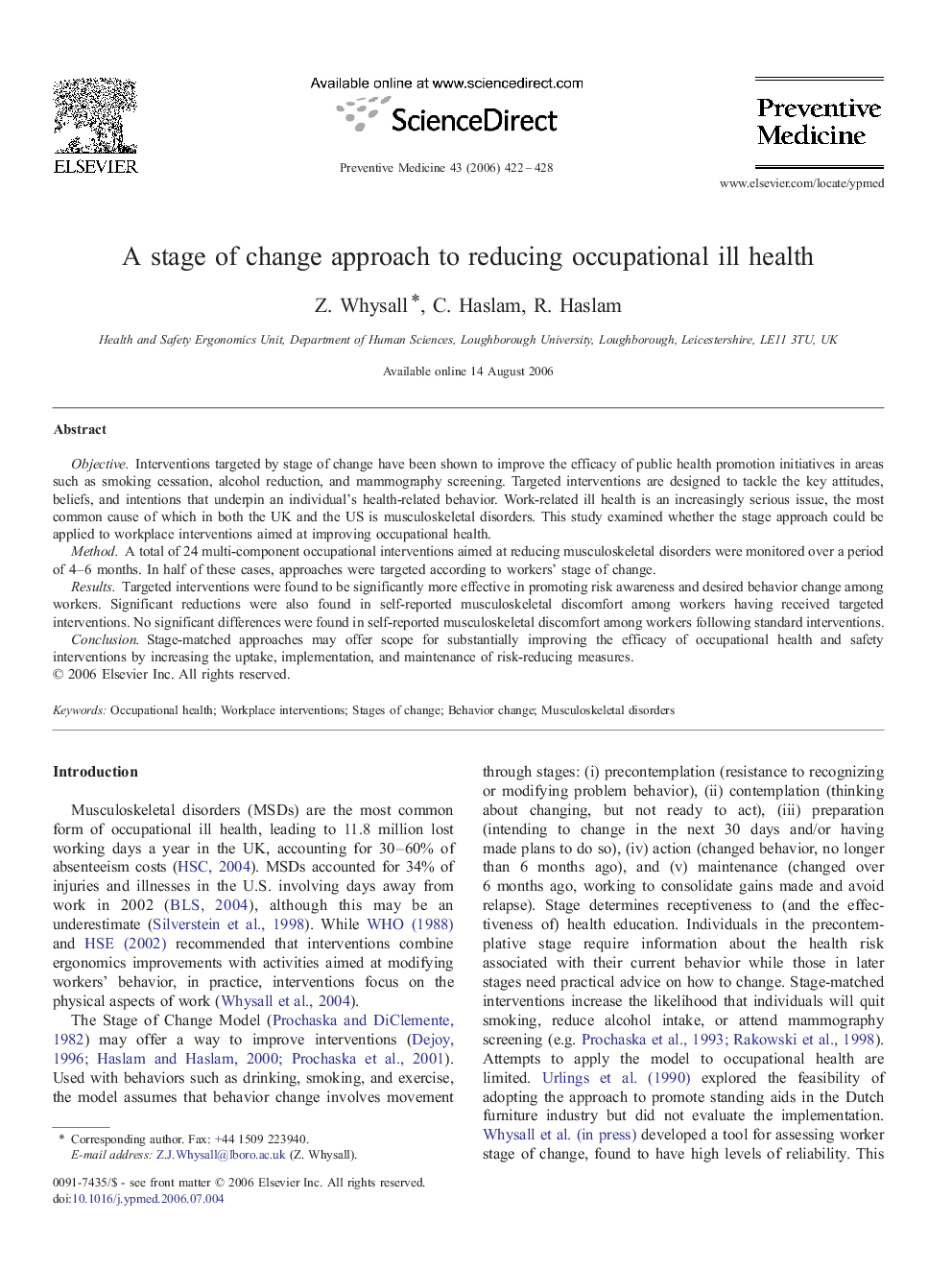| Article ID | Journal | Published Year | Pages | File Type |
|---|---|---|---|---|
| 3101786 | Preventive Medicine | 2006 | 7 Pages |
Objective.Interventions targeted by stage of change have been shown to improve the efficacy of public health promotion initiatives in areas such as smoking cessation, alcohol reduction, and mammography screening. Targeted interventions are designed to tackle the key attitudes, beliefs, and intentions that underpin an individual's health-related behavior. Work-related ill health is an increasingly serious issue, the most common cause of which in both the UK and the US is musculoskeletal disorders. This study examined whether the stage approach could be applied to workplace interventions aimed at improving occupational health.Method.A total of 24 multi-component occupational interventions aimed at reducing musculoskeletal disorders were monitored over a period of 4–6 months. In half of these cases, approaches were targeted according to workers' stage of change.Results.Targeted interventions were found to be significantly more effective in promoting risk awareness and desired behavior change among workers. Significant reductions were also found in self-reported musculoskeletal discomfort among workers having received targeted interventions. No significant differences were found in self-reported musculoskeletal discomfort among workers following standard interventions.Conclusion.Stage-matched approaches may offer scope for substantially improving the efficacy of occupational health and safety interventions by increasing the uptake, implementation, and maintenance of risk-reducing measures.
